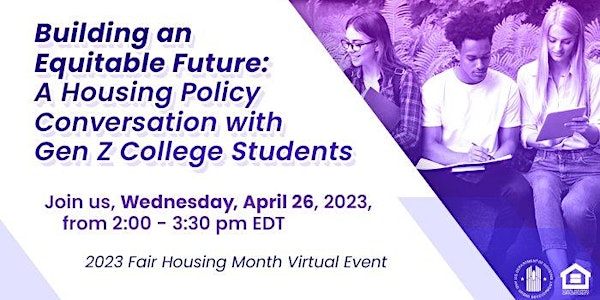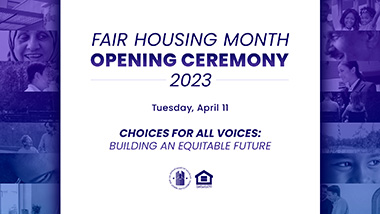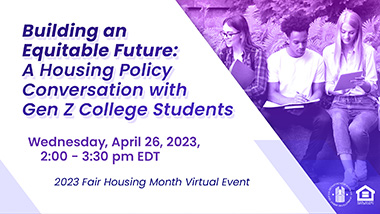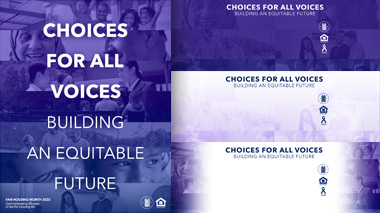| ||||||
| ||||||
| ||||||
Info about Fair Housing in Maryland - including housing discrimination, hate crimes, affordable housing, disabilities, segregation, mortgage lending, & others. http://www.gbchrb.org. 443.347.3701.
| ||||||
| ||||||
| ||||||
Shortage of Affordable Housing
According to the June, 2024 "Maryland Housing Profile" compiled by the National Low Income Housing Coalition (NLIHC), Maryland has "a shortage of rental homes affordable and available to extremely low income households (ELI), whose incomes are at or below the poverty guideline or 30% of their area median income (AMI). Many of these households are severely cost burdened, spending more than half of their income on housing. Severely cost burdened poor households are more likely than other renters to sacrifice other necessities like healthy food and healthcare to pay the rent, and to experience unstable housing situations like evictions." The statistics are stark:
197,310 or 26% - .Renter households that are extremely low income.
-134,192 - Shortage of rental homes affordable and available for extremely low income renters.
$37,740 - Average income limit for 4-person extremely low income household.
$76,345 - Annual household income needed to afford a two-bedroom rental home at HUD's Fair Market Rent.
73% - Percent of extremely low income renter households with severe cost burden.
According to the NLIHC's Out of Reach: The High Cost of Housing (2024), working at minimum wage of $15.00/hour each week you have to work 82 hours to afford a modest 1 bedroom rental home at the State's Fair Market Rent. In Maryland, the Fair Market Rent (FMR) for a two-bedroom apartment is $1,909. In order to afford this level of rent and utilities - without paying more than 30% of income on housing - a household must earn $6,362 monthly or $76,345 annually. Assuming a 40-hour work week, 52 weeks per year, this level of income translates into an hourly Housing Wage of $36.70.
Read the Maryland profile in the NLIHC's Out of Reach report.
Housing Inventory Characteristics
In 2019-2023, Maryland had a total of 2.5 million housing units. Of these housing units:
72.4% were single-family houses either not attached to any other structure or attached to one or more structures (commonly referred to as "townhouses" or "row houses").
26.2% of the housing units were located in multi-unit structures, or those buildings that contained two or more apartments.
1.3% were mobile homes, while any remaining housing units were classified as "other," which included boats, recreational vehicles, vans, etc.
When was the Housing Built?
8.6% of the housing inventory was comprised of houses built since 2010, while 10.8% of the houses were first built in 1939 or earlier. The median number of rooms in all housing units in Maryland was 6.2 rooms, and of these housing units 66.4 percent had three or more bedrooms (Source: DP04 | Selected Housing Characteristics).
Occupied Housing Characteristics
In 2019-2023, Maryland had 2.3 million housing units that were occupied or had people living in them, while the remaining 206,022 were vacant.
Of the occupied housing units, the percentage of these houses occupied by owners (also known as the homeownership rate) was 67.5% while renters occupied 32.5%. The average household size of owner-occupied houses was 2.70 and in renter-occupied houses it was 2.34.
Some 9.3% of householders of these occupied houses had moved into their house since 2021, while 10.9% moved into their house in 1989 or earlier. Households without a vehicle available for personal use comprised 8.7% and another 22.1% had three or more vehicles available for use (Source: DP04 | Selected Housing Characteristics).
Financial Characteristics and Housing Costs
In 2019-2023, the median property value for owner-occupied houses in Maryland was $397,700.
Of the owner-occupied households, 71.5% had a mortgage. 28.5% owned their houses "free and clear," that is without a primary mortgage or loan on the house. The median monthly housing costs for owners with a mortgage was $2,301 and for owners without a mortgage it was $728.
For renter-occupied households, the median gross rent for Maryland was $1,662. Gross rent includes the monthly contract rent and any monthly payments made for electricity, gas, water and sewer, and any other fuels to heat the house (Source: DP04 | Selected Housing Characteristics).
Disability
In Maryland, among the civilian noninstitutionalized population in 2019-2023, 11.4% reported a disability. The likelihood of having a disability varied by age - from 4.3% of people under 18 years old, to 9.2% of people 18 to 64 years old, and to 29.6% of those 65 and over (Source: DP02 | Selected Social Characteristics in the United States).
Go to the Census Bureau's 1999-2023 Maryland Narrative Profile.
New Jersey Attorney General Matthew J. Platkin and the New Jersey Division on Civil Rights have announced a proposed rule describing and clarifying the prohibitions against disparate impact discrimination under the New Jersey Law Against Discrimination (LAD). The proposed rule clarifies the legal standard for disparate impact discrimination and the burdens of proof in claims in the housing, financial lending, employment, places of public accommodation, and contracting. The proposed rule largely codifies existing state and federal case law and provides examples of policies and practices that may result in a disparate impact on members of a protected class under the LAD.
New Jersey’s proposed LAD prohibits conduct that expressly treats people differently based on their membership in a protected class and policies or practices that have a negative impact on members of a protected class. Under the LAD, even policies or practices that are neutral on their face and that do not single out a protected class for different treatment may violate the LAD if they have a disparate impact on protected class members.
Proposed rule
The proposed rule is intended to clarify that the LAD prohibits practices or policies that result in a disproportionately negative effect on members of a protected class, even if such practices or policies are not intended to discriminate, unless it is shown that such are necessary to achieve a substantial, legitimate, nondiscriminatory interest and there is no less discriminatory, equally effective alternative that would achieve the same interest. The proposed new rule provides the standard for determining whether a practice or policy is unlawfully discriminatory, and the burden-shifting framework applied to the standard for disparate impact claims arising in specific contexts. The proposed rule covers how liability for disparate impact may apply to many examples of policies and practices.
Subchapter 4 regards housing and housing financial assistance. A proposed burden-shifting framework putting the burden of showing that there is not a less discriminatory, equally effective alternative means of achieving the housing provider’s or lender’s substantial, legitimate, nondiscriminatory interest on the respondent at the final stage of the burden-shifting test. If the complainant can show the practice or policy results in a disparate impact on members of a protected class, the respondent must show that the challenged practice or policy is necessary to achieve a substantial, legitimate, nondiscriminatory interest and that there is not a less discriminatory, equally effective alternative means of achieving that.The respondent may, but is not required to, identify what policy or practice options it considered and how and why it decided to select the policy or practice.
Here are some examples of policies and practices that may have an unlawful disparate impact:
This framework aligns with how New Jersey courts and the New Jersey Division of Civil Rights have applied disparate impact liability. Placing the burden on the respondent to prove no less discriminatory alternatives exist is appropriate “in light of the particularly stark information asymmetry between housing providers and victims of housing discrimination, as housing providers are far more likely to have access to information about the challenged practice or policy, their interests, what potential alternative practices or policies are available, and whether an alternative could serve their interests while having less discriminatory effects.” Increased use of tenant screening reports and online platforms in housing sale and rental markets have made it especially difficult for complainants to access information about specific housing providers’ policies and practices, and that there is a significant imbalance in access to legal representation in housing cases, as landlords have legal representation in 90% of housing cases involving eviction, while less than 10% of renters have legal representation in such cases.
The proposed rule also would apply to the practices and policies of real estate brokers, agents, salespersons, property management, and lending institutions. For lending institutions, this includes making available or unavailable the provision of housing financial assistance, establishing financial assistance terms or conditions, and the creation and application of criteria requirements, procedures, or standards for the review and approval of real estate transactions, with the exception of evaluations of an applicant’s consumer credit history where required for a federal loan product or formula or practices or policies that enforce federal guidelines.
A 2024 report from the Joint Center for Housing Studies (JCHS) of Harvard University reveals that although the rental market is cooling, evictions and homelessness are rising. The rental housing affordability crisis has deepened across all income groups and now affects half of all U.S. renters.
It was found that:
(1) Rental costs have stabilized following historic increases in 2021 and 2022. As of 2023's third quarter, rental growth slowed to rates of less than 1%, down from 15% in early 2022. Although these reduced growth rates have offered relief for some households, asking rents still exceed pre-pandemic levels. The report finds that 50% of all renters are now cost burdened, paying more than 30% of their income on rent and utilities.
(2) The supply of lower-cost units has diminished; over 2.1 million units renting for less than $600 per month have been lost since 2012. From 2012-2022, higher construction costs and increased demand from high-income renters resulted in an increase of 8.4 million units renting for more than $1,400, which is unaffordable for most renters.
(3) As of January 2023, more than 653,000 people were experiencing homelessness, which was the highest number on record.
(4) Although multifamily housing construction increased during the pandemic, it began to slow in late 2023. In October 2023, new multifamily housing starts were down by 30% from 2022, and the reduced starts could have lasting effects on the current shortage of multifamily housing.
(5) Property insurance premiums have skyrocketed by 30 or 40% in some areas, which can limit the number of affordable units a property owner can provide. In some cases, borrowers opt for reduced coverage to bring down their insurance costs, but this strategy can place properties in an insecure position if a natural disaster occurs. In addition, these increased insurance costs also can lead property owners to compensate by cutting back on maintenance and necessary upgrades.
(6) The report indicates that the country's rental housing stock is aging, with a median age of 44 years in 2021 compared to 34 years in 2001. This aging housing stock requires substantial upgrades in habitability, energy efficiency, and accessibility standards, and it also faces a heightened risk of damage from climate change and extreme weather events.
The just-released Harvard Joint Center for Housing Studies report America's Rental Housing 2024 has found that in 2022 an all-time high of 22.4 million renters spent over 30% of their income on rent and utilities. Among cost-burdened households, 12.1 million had housing costs that were more than half of their income, an all-time high for such severe burdens. The dwindling supply of low-rent units is only worsening cost burdens, according to the report. As the study explains: "Climbing rents in recent years propelled US cost burdens to staggering new heights: in 2022, half of all US renters were cost burdened. And while rental markets are finally cooling, evictions have risen, the country is seeing the highest homelessness counts on record, and the need for rental assistance is greater than ever."
The negative personal impacts of such tight budgets force financially vulnerable renters to make awful choices. Harvard Joint Center analysis of the 2022 Consumer Expenditure Survey found that severely cost-burdened renter households in the lowest expenditure quartile spent 39% less on food and 42% less on healthcare than unburdened households. Others may end up living in overcrowded or structurally inadequate conditions, threatening their health and well-being.
Local Data
For the Baltimore-Columbia-Towson area, 86% of renters are considered moderately burdened by the report, and 103% severely burdened. This geographic combination is the sole local breakdown available in the study.
Concerning the renters' race, about 175,000 renters in the area are Black, 134,000 White, 25,000 Hispanic/Latino, 18,000 Asian, and 18,000 multi-racial or another race. Some 52.1% of Blacks are renters, 21.1% of Whites, 45.8% of Hispanics/Latinos, 31.2% of Asians, and 50.1% multi-racial or another race.
Read the Harvard Joint Center study
Go to the Harvard report's summary page.
A recent HUD report published in HUD User reports on the Bipartisan Policy Center's August, 2023 online event, “Investing in Opportunity: Rental Assistance and Neighborhoods of Choice,” featuring recent research from Opportunity Insights (OI) on the Seattle-based "Creating Moves to Opportunity" program along with a general discussion of the challenges and benefits for housing choice voucher (HCV) recipients moving to low-poverty, high-opportunity neighborhoods.
OI detailed recent research showing that children's upward economic mobility varies widely across neighborhoods nationwide. Studies have also shown that moving to higher-opportunity neighborhoods at younger ages can significantly improve outcomes later in life. Considerable research demonstrates that housing location affects essential outcomes, such as income and health, for residents, and that living in low-poverty neighborhoods with high-quality schools and low crime rates is associated with increased economic mobility and other positive effects. However, housing in these neighborhoods often is unaffordable for low-income families.
Low-income families trying to access housing in high-opportunity neighborhoods face two big challenges: (1) finding a home to rent - one-third of high-opportunity neighborhoods are "rental deserts," many with exclusively or primarily single-family homes - and (2) being able to afford the rent. The assistance of counselors or coaches can help, especially when they are members or representatives of the community.
For landlords, participation in the HCV program involves additional steps and paperwork, producing delays and uncertainty. Enterprise Community Partners urged policy changes to lower the regulatory burden for landlords to participate in the program and reduce the time to lease to a voucher holder.
Programs that provide housing vouchers and also ensure that the vouchers compete with market-rate rents, lower regulatory burdens for landlords, and provide additional financial supports can help low-income renters move to opportunity neighborhoods. Seattle's "Creating Moves to Opportunity" program and programs providing mobility-related services under HUD's Community Choice Demonstration are successful at increasing opportunity for HUD-assisted renters.
*****
Welcome to this edition of Fair Housing E-News! This newsletter is produced by the GBCHRB as a public service. More info/resources: http://www.gbchrb.org. Just a few of the headlines are:
Baltimore Civil Rights Week 2023 is October 30-November 3rd. Civil Rights Week 2023 is held by the Baltimore City Office of Equity and Civil Rights (OECR). Civil Rights Week 2023 Sponsorship Packages.
Study Links Historic Redlining to Worse Cardiovascular Health for Veterans. Read the July16, 2023 Washington Post article.
2022 Saw the Highest Rate of Recorded Antisemitic Incidents in the US and Maryland Sees Antisemitic Graffiti and Noxious High School Behavior. Read the October 13, 2023 CNN article. Read the September 20, 2023 CBS News report. Read the September 20, 2023 WBALTV article.
To read this issue of Fair Housing E-News: fhnews2023oct.pdf.
Contact the GBCHRB for free Fair Housing training.
GBCHRB
P. O. Box 66180
Baltimore, Maryland 21239-6180
|
|
Housing Discrimination on Basis of Criminal History Outlawed
 | ||||||
| ||||||
|
Book Review:
by Leah Rothstein and Richard Rothstein
Fair Housing Training May 22-June 23
Too many renters still face discrimination - often without knowing it. Renters have rights! Economic Action Maryland is offering free, online training to educate tenants about their fair housing rights, and what to do if they have faced discrimination.
Check out the schedule below. Can’t make it at that time? A recording of the training will be available to all training registrants: info@econaction.org.
Know Your Rights: Fair Housing 101 - This workshop reviews the basics of Fair Housing laws, including the protected classes in Maryland, examples of housing discrimination, and what to do if you think you’ve experienced illegal housing discrimination. Offered twice! Friday May 26, 10:00 a.m. - 11:00 a.m. and Friday June 9, 10:00 a.m. - 11:00 a.m.
Know Your Rights: Disability and Housing - As many as 20% of all Marylanders have a disability. The Fair Housing Act not only protects people with disabilities from housing discrimination, it also affords them additional housing rights. Learn about your right to accommodations and modifications, how to advocate for yourself, and what to do if your housing provider denies your request. Offered twice! Friday June 2, 10:00a - 11:00 a.m. and Friday June 16, 10:00 a.m. - 11:00 a.m.
Know Your Rights: HOME Act - In 2020, Maryland expanded its fair housing laws by passing the HOME Act, which adds "source of income" as a protected class. This extends fair housing rights to people with government assistance like section 8 vouchers and eviction prevention funds, as well as others with non-wage income. Learn about your newest fair housing rights and how to report discrimination. Friday June 23, 10:00 a.m - 11:00 a.m.
***
P.S. If you aren’t already a member, we would love to have you join! Members give us power and strength. You can join as an individual or organizational member. If you can’t join as a member, consider a one-time or sustaining donation. We’re up against highly paid Annapolis lobbyists and your support enables us to be in Annapolis and win these fights for economic rights.
Support Economic Justice
2209 Maryland Ave | Baltimore, Maryland 21218
(410) 220-0494 | info@econaction.org
HUD Fair Housing Month

Join HUD's Office of Fair Housing and Equal Opportunity (FHEO) for a virtual housing policy conversation with Gen Z college students.
Wednesday, April 26 · 2 - 3:30pm EDT
Online
During Fair Housing Month, HUD is commemorating the 55th anniversary of the Fair Housing Act with events highlighting the impact and significance of this landmark civil rights law. Please join the Office of Fair Housing and Equal Opportunity (FHEO) on Wednesday, April 26 at 2:00 P.M. (EDT) via webcast for the Fair Housing Month 2023 National Activity, Building an Equitable Future: A Housing Policy Conversation with Gen Z College Students.
In recognition of this year’s Fair Housing Month theme, Choices for All Voices: Building an Equitable Future, FHEO will host a virtual conversation with Gen Z college students. Their conversation will explore housing policy and the importance of securing fair housing protections for the new generation of housing consumers.
The event will feature the Principal Deputy Assistant Secretary for FHEO, Demetria L. McCain, the Deputy Assistant Secretary for the Office of Policy, Legislative Initiatives and Outreach, DeAndra J. Cullen, and a panel of Gen Z college students.
For more information, visit the Fair Housing Month 2023 webpage. Follow us on Twitter and Facebook for news and updates throughout Fair Housing Month.
We hope you will join us as we engage with the new generation of housing consumers and advocates.
HUD Fair Housing Month Proclamation
April is National Fair Housing Month!
This year, we commemorate the 55th anniversary of the passage of the Fair Housing Act, the landmark civil rights law signed by President Lyndon B. Johnson on April 11, 1968, that made discrimination in housing transactions unlawful. The Fair Housing Act prohibits discrimination in housing because of race, color national origin, religion, sex (including gender identity and sexual orientation), disability, and familial status. For more information about your fair housing rights, visit FHEO's website.

Fair Housing Month 2023 Opening Ceremony
FHEO hosted the Fair Housing Month Opening Ceremony on April 11.
Watch the recording (coming soon)

Fair Housing Month 2023 National Event
Register to watch the National Event, Building an Equitable Future: A Housing Policy Conversation with Gen Z College Students, on Wednesday, April 26 at 2:00 p.m. EDT

Fair Housing Poster and Virtual Backgrounds
For more Fair Housing Month resources, visit FHEO’s Outreach Tools Page.

Marcia L. Fudge, HUD Secretary

Demetria L. McCain, Principal Deputy Assistant Secretary, Fair Housing and Equal Opportunity

Lee Porter, Executive Director, The Fair Housing Council of Northern New Jersey